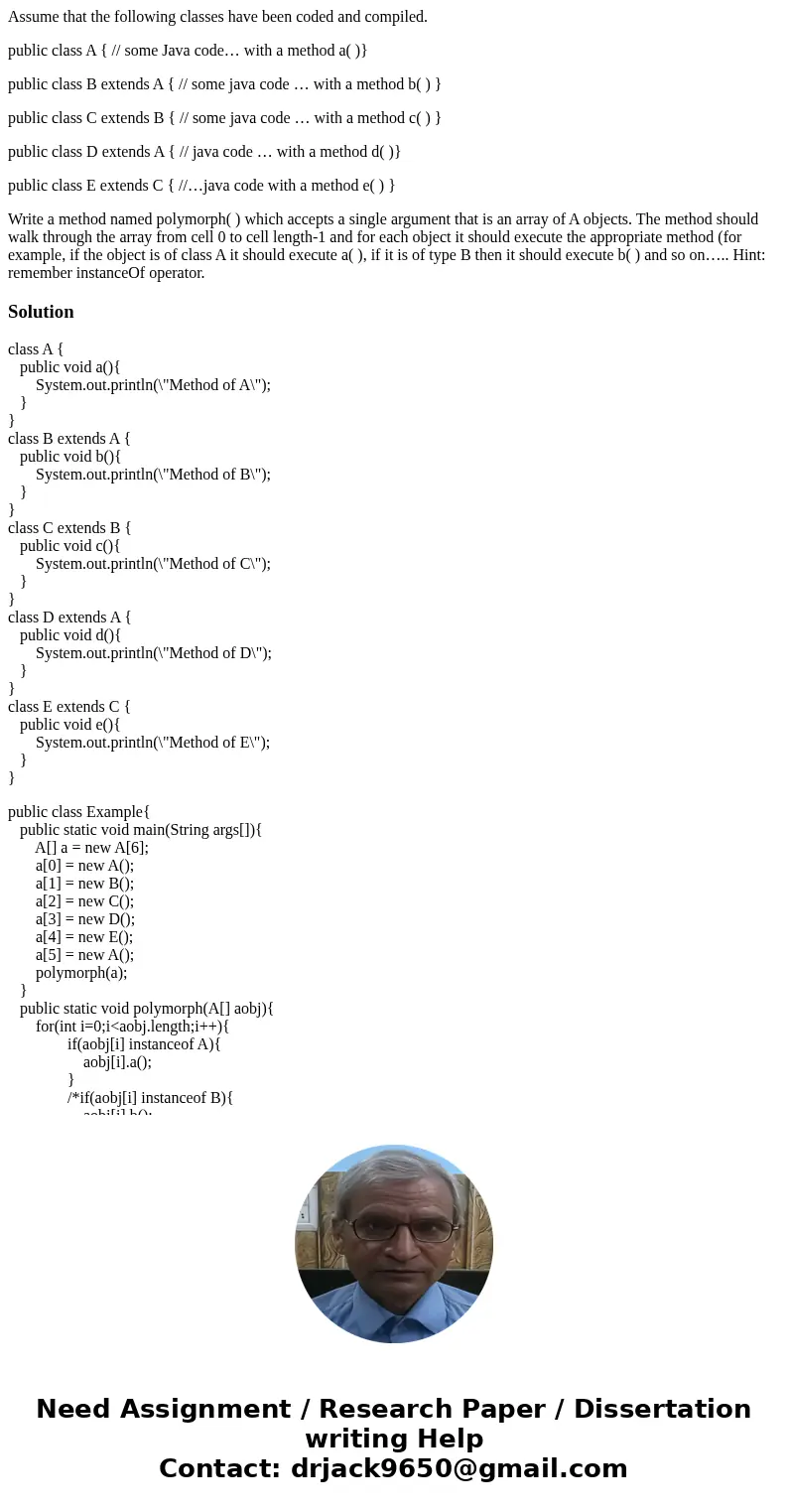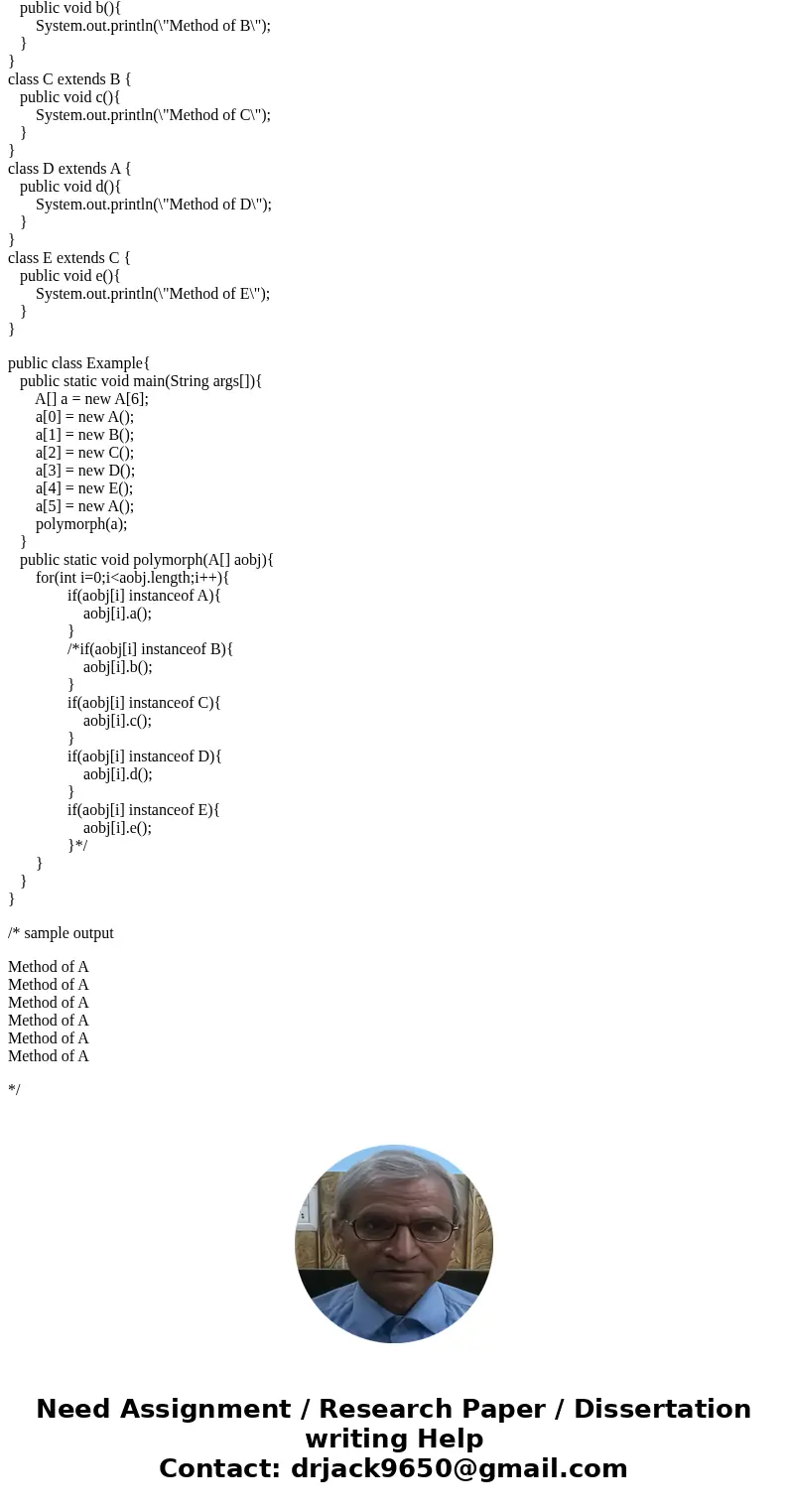Assume that the following classes have been coded and compil
Assume that the following classes have been coded and compiled.
public class A { // some Java code… with a method a( )}
public class B extends A { // some java code … with a method b( ) }
public class C extends B { // some java code … with a method c( ) }
public class D extends A { // java code … with a method d( )}
public class E extends C { //…java code with a method e( ) }
Write a method named polymorph( ) which accepts a single argument that is an array of A objects. The method should walk through the array from cell 0 to cell length-1 and for each object it should execute the appropriate method (for example, if the object is of class A it should execute a( ), if it is of type B then it should execute b( ) and so on….. Hint: remember instanceOf operator.
Solution
class A {
public void a(){
System.out.println(\"Method of A\");
}
}
class B extends A {
public void b(){
System.out.println(\"Method of B\");
}
}
class C extends B {
public void c(){
System.out.println(\"Method of C\");
}
}
class D extends A {
public void d(){
System.out.println(\"Method of D\");
}
}
class E extends C {
public void e(){
System.out.println(\"Method of E\");
}
}
public class Example{
public static void main(String args[]){
A[] a = new A[6];
a[0] = new A();
a[1] = new B();
a[2] = new C();
a[3] = new D();
a[4] = new E();
a[5] = new A();
polymorph(a);
}
public static void polymorph(A[] aobj){
for(int i=0;i<aobj.length;i++){
if(aobj[i] instanceof A){
aobj[i].a();
}
/*if(aobj[i] instanceof B){
aobj[i].b();
}
if(aobj[i] instanceof C){
aobj[i].c();
}
if(aobj[i] instanceof D){
aobj[i].d();
}
if(aobj[i] instanceof E){
aobj[i].e();
}*/
}
}
}
/* sample output
Method of A
Method of A
Method of A
Method of A
Method of A
Method of A
*/


 Homework Sourse
Homework Sourse